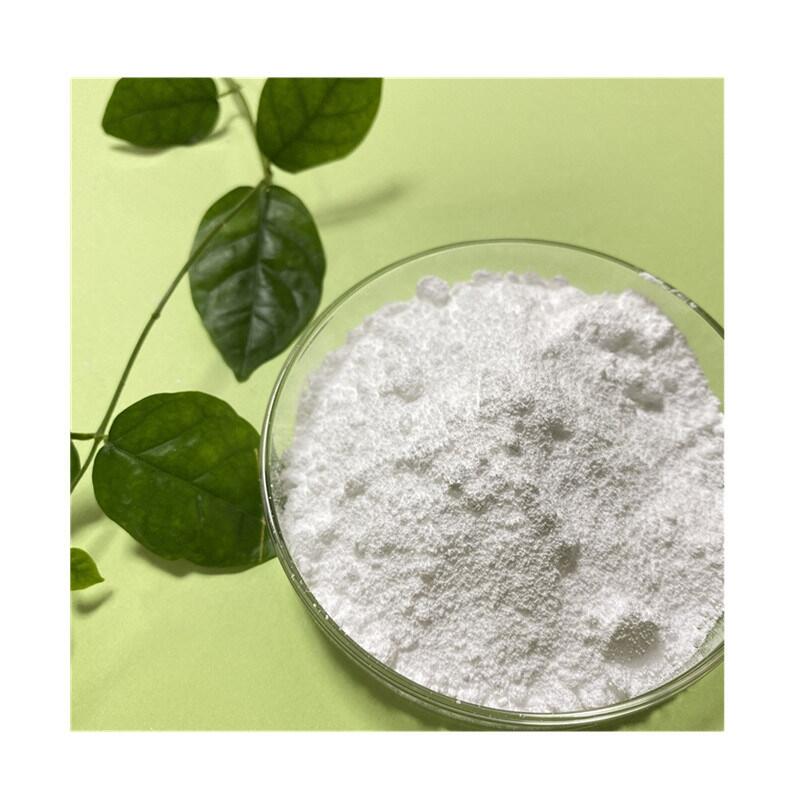-
Categories
-
Pharmaceutical Intermediates
-
Active Pharmaceutical Ingredients
-
Food Additives
- Industrial Coatings
- Agrochemicals
- Dyes and Pigments
- Surfactant
- Flavors and Fragrances
- Chemical Reagents
- Catalyst and Auxiliary
- Natural Products
- Inorganic Chemistry
-
Organic Chemistry
-
Biochemical Engineering
- Analytical Chemistry
-
Cosmetic Ingredient
- Water Treatment Chemical
-
Pharmaceutical Intermediates
Promotion
ECHEMI Mall
Wholesale
Weekly Price
Exhibition
News
-
Trade Service
*Only for medical professionals to read for reference, 1 minute a day, to give you professional "talking information" in the tumor circle! (If you need the original text of the literature, you can add the editor WeChat yxj_oncology to obtain) Key Points Ann Oncol: ESMO releases clinical practice guidelines for small cell lung cancer A new drug for progression-free survival for patients with soft tissue sarcoma treated with tetracycline: The third-generation ALK inhibitor loratinib was accepted by CDE 01Ann Oncol: ESMO released clinical practice guidelines for small cell lung cancer.
Recently, Annals Of Oncology published a small report online.
The European Society of Medical Oncology (ESMO) clinical practice guidelines for cell lung cancer (SCLC) provide important recommendations for the clinical management of SCLC.
Screenshot of article release.
The guide covers clinical and pathological diagnosis, staging and risk assessment, treatment and follow-up, and provides treatment algorithms for local, advanced/metastatic and recurrent SCLC; all recommendations are compiled by a multidisciplinary expert team and based on Existing scientific data and the author’s collective expert opinions.
Figure 1 The treatment algorithm for patients with limited-stage (stage I-III that meets the requirements for curative treatment) Figure 2 The treatment algorithm for patients with extensive-stage (stage IV or stage III that does not meet the requirements for curative treatment) Figure 3 The treatment algorithm for patients with recurrent SCLC 02 Nature Reviews Gastroenterology & Hepatology: Progress in immunotherapy for hepatocellular carcinoma A few days ago, Nature Reviews Gastroenterology & Hepatology published an online review detailing the progress in immunotherapy for hepatocellular carcinoma (HCC).
Screenshot of article release This review provides the latest information on the best use of immunotherapies currently available for liver cancer and the treatment strategies being developed: in the occurrence and progression of HCC, multiple immune mechanisms are important and related to prognosis.
Checkpoint inhibitors targeting PD-1, PD-L1 and CTLA-4 are active, tolerable, and have clinical benefits for advanced HCC.
At present, the best first-line treatment for advanced liver cancer is the combination of PD-L1 inhibitor atilizumab and vascular endothelial growth factor (VEGF) inhibitor bevacizumab.
There is almost a complete lack of suitable biomarkers to guide the development of checkpoint inhibitors and their combinations in HCC.
In the early stages of HCC, immunotherapy may have a synergistic effect on local and local interventions.
Other promising forms of HCC immunotherapy are actively sought, such as additional checkpoint inhibitors, adoptive cell transfer, vaccination, and viral therapy.
03CCR: The use of dexrazoxane did not reduce the progression-free survival of patients with soft tissue sarcoma receiving first-line doxorubicin treatment.
A few days ago, Clinical Cancer Research published an online interim analysis of a phase II clinical trial, which showed that dexrazoxane did not reduce the use of doxorubicin.
The progression-free survival (PFS) of patients with soft tissue sarcoma (STS), which is the first-line treatment strategy.
Article release screenshots This single-arm, non-inferiority phase II clinical trial included patients with metastatic or unresectable STS receiving first-line doxorubicin treatment.
33 of the 65 patients were selected for interim analysis.
The PFS of the first-line treatment with doxorubicin was 4.
6 months, and the reduction of PFS to 3.
7 months was considered non-inferiority.
Secondary endpoints include heart-related mortality, incidence of heart failure/cardiomyopathy, and expanded cardiac monitoring parameters (including three-dimensional echocardiography).
If the patient benefits from it and does not show symptomatic cardiac dysfunction, he can continue to receive more than 600 mg/m2 doxorubicin treatment.
In the interim analysis, the PFS of the first-line treatment with dexrazoxane and adriamycin in advance was 8.
4 months (95% CI 5.
1-11.
2).Three patients who received doxorubicin ≥600 mg/m2 were removed from the study due to cardiotoxicity.
No patient required cardiac hospitalization and new persistent cardiac dysfunction (left ventricular ejection fraction continued to be less than 50%).
The median dose of doxorubicin is 450 mg/m2.
The above results indicate that dexrazoxane does not reduce the PFS of STS patients receiving first-line doxorubicin treatment, and the participation of cardiologists is beneficial to the safe use and monitoring of high-dose anthracyclines in STS.
04 New drug: The third-generation ALK inhibitor loratinib was accepted by the CDE.
On April 15, information from the Center for Drug Evaluation (CDE) of the National Medical Products Administration (NMPA) of China showed that the third-generation ALK inhibitor loratinib Nepal’s listing application was accepted.
Loratinib has previously been approved for marketing in Hong Kong, China, for the treatment of ALK-positive advanced non-small cell lung cancer (NSCLC) patients who have previously received ALK inhibitor therapy.
Screenshot of NMPA's official website.
Loratinib was approved by the U.
S.
Food and Drug Administration (FDA) for the first-line treatment of ALK-positive NSCLC patients based on the results of the Phase III clinical trial CROWN study.
The results of the interim analysis published in the New England Journal of Medicine (NEJM) in November 2020 showed that compared with the existing first-line standard treatment regimen crizotinib, loratinib reduced the risk of disease progression or death by 72% (HR 0.
28, 95% CI 0.
19-0.
41, P<0.
001).
For the prevention and alleviation of brain metastases, loratinib also shows significant advantages.
At 12 months, the survival rate without intracranial disease progression in the loratinib group was 96%, while that in the crizotinib group was 60%.
Loratinib reduces the risk of intracranial disease progression or death by 93%.
References: [1]DINGEMANS AMC,FRÜH M,ARDIZZONI A,et al.
Small-cell lung cancer:ESMO Clinical Practice Guidelines for diagnosis,treatment and follow-up†[J].
Annals of Oncology,2021 Apr 13.
doi :10.
1016/j.
annonc.
2021.
03.
207.
[2]Sangro B,Sarobe P,Hervás-Stubbs S,et al.
Advances in immunotherapy for hepatocellular carcinoma.
Nat Rev Gastroenterol Hepatol.
2021 Apr 13.
doi:10.
1038/s41575- 021-00438-0.
Epub ahead of print.
PMID:33850328.
[3]Van Tine BA,Hirbe AC,Oppelt P,et al.
Interim analysis of the Phase II Study: Non-Inferiority Study of Doxorubicin with Upfront Dexrazoxane plus Olaratumab for Advanced or Metastatic Soft Tissue Sarcoma.
Clin Cancer Res.
2021:clincanres.
4621.
2020.
doi:10.
1158/1078-0432.
CCR-20-4621.
Epub ahead of print.
PMID:33766818.
[4]https://mp.
weixin.
qq.
com/s/21IkOVxewVCRyTZ9JC40F
Recently, Annals Of Oncology published a small report online.
The European Society of Medical Oncology (ESMO) clinical practice guidelines for cell lung cancer (SCLC) provide important recommendations for the clinical management of SCLC.
Screenshot of article release.
The guide covers clinical and pathological diagnosis, staging and risk assessment, treatment and follow-up, and provides treatment algorithms for local, advanced/metastatic and recurrent SCLC; all recommendations are compiled by a multidisciplinary expert team and based on Existing scientific data and the author’s collective expert opinions.
Figure 1 The treatment algorithm for patients with limited-stage (stage I-III that meets the requirements for curative treatment) Figure 2 The treatment algorithm for patients with extensive-stage (stage IV or stage III that does not meet the requirements for curative treatment) Figure 3 The treatment algorithm for patients with recurrent SCLC 02 Nature Reviews Gastroenterology & Hepatology: Progress in immunotherapy for hepatocellular carcinoma A few days ago, Nature Reviews Gastroenterology & Hepatology published an online review detailing the progress in immunotherapy for hepatocellular carcinoma (HCC).
Screenshot of article release This review provides the latest information on the best use of immunotherapies currently available for liver cancer and the treatment strategies being developed: in the occurrence and progression of HCC, multiple immune mechanisms are important and related to prognosis.
Checkpoint inhibitors targeting PD-1, PD-L1 and CTLA-4 are active, tolerable, and have clinical benefits for advanced HCC.
At present, the best first-line treatment for advanced liver cancer is the combination of PD-L1 inhibitor atilizumab and vascular endothelial growth factor (VEGF) inhibitor bevacizumab.
There is almost a complete lack of suitable biomarkers to guide the development of checkpoint inhibitors and their combinations in HCC.
In the early stages of HCC, immunotherapy may have a synergistic effect on local and local interventions.
Other promising forms of HCC immunotherapy are actively sought, such as additional checkpoint inhibitors, adoptive cell transfer, vaccination, and viral therapy.
03CCR: The use of dexrazoxane did not reduce the progression-free survival of patients with soft tissue sarcoma receiving first-line doxorubicin treatment.
A few days ago, Clinical Cancer Research published an online interim analysis of a phase II clinical trial, which showed that dexrazoxane did not reduce the use of doxorubicin.
The progression-free survival (PFS) of patients with soft tissue sarcoma (STS), which is the first-line treatment strategy.
Article release screenshots This single-arm, non-inferiority phase II clinical trial included patients with metastatic or unresectable STS receiving first-line doxorubicin treatment.
33 of the 65 patients were selected for interim analysis.
The PFS of the first-line treatment with doxorubicin was 4.
6 months, and the reduction of PFS to 3.
7 months was considered non-inferiority.
Secondary endpoints include heart-related mortality, incidence of heart failure/cardiomyopathy, and expanded cardiac monitoring parameters (including three-dimensional echocardiography).
If the patient benefits from it and does not show symptomatic cardiac dysfunction, he can continue to receive more than 600 mg/m2 doxorubicin treatment.
In the interim analysis, the PFS of the first-line treatment with dexrazoxane and adriamycin in advance was 8.
4 months (95% CI 5.
1-11.
2).Three patients who received doxorubicin ≥600 mg/m2 were removed from the study due to cardiotoxicity.
No patient required cardiac hospitalization and new persistent cardiac dysfunction (left ventricular ejection fraction continued to be less than 50%).
The median dose of doxorubicin is 450 mg/m2.
The above results indicate that dexrazoxane does not reduce the PFS of STS patients receiving first-line doxorubicin treatment, and the participation of cardiologists is beneficial to the safe use and monitoring of high-dose anthracyclines in STS.
04 New drug: The third-generation ALK inhibitor loratinib was accepted by the CDE.
On April 15, information from the Center for Drug Evaluation (CDE) of the National Medical Products Administration (NMPA) of China showed that the third-generation ALK inhibitor loratinib Nepal’s listing application was accepted.
Loratinib has previously been approved for marketing in Hong Kong, China, for the treatment of ALK-positive advanced non-small cell lung cancer (NSCLC) patients who have previously received ALK inhibitor therapy.
Screenshot of NMPA's official website.
Loratinib was approved by the U.
S.
Food and Drug Administration (FDA) for the first-line treatment of ALK-positive NSCLC patients based on the results of the Phase III clinical trial CROWN study.
The results of the interim analysis published in the New England Journal of Medicine (NEJM) in November 2020 showed that compared with the existing first-line standard treatment regimen crizotinib, loratinib reduced the risk of disease progression or death by 72% (HR 0.
28, 95% CI 0.
19-0.
41, P<0.
001).
For the prevention and alleviation of brain metastases, loratinib also shows significant advantages.
At 12 months, the survival rate without intracranial disease progression in the loratinib group was 96%, while that in the crizotinib group was 60%.
Loratinib reduces the risk of intracranial disease progression or death by 93%.
References: [1]DINGEMANS AMC,FRÜH M,ARDIZZONI A,et al.
Small-cell lung cancer:ESMO Clinical Practice Guidelines for diagnosis,treatment and follow-up†[J].
Annals of Oncology,2021 Apr 13.
doi :10.
1016/j.
annonc.
2021.
03.
207.
[2]Sangro B,Sarobe P,Hervás-Stubbs S,et al.
Advances in immunotherapy for hepatocellular carcinoma.
Nat Rev Gastroenterol Hepatol.
2021 Apr 13.
doi:10.
1038/s41575- 021-00438-0.
Epub ahead of print.
PMID:33850328.
[3]Van Tine BA,Hirbe AC,Oppelt P,et al.
Interim analysis of the Phase II Study: Non-Inferiority Study of Doxorubicin with Upfront Dexrazoxane plus Olaratumab for Advanced or Metastatic Soft Tissue Sarcoma.
Clin Cancer Res.
2021:clincanres.
4621.
2020.
doi:10.
1158/1078-0432.
CCR-20-4621.
Epub ahead of print.
PMID:33766818.
[4]https://mp.
weixin.
qq.
com/s/21IkOVxewVCRyTZ9JC40F






